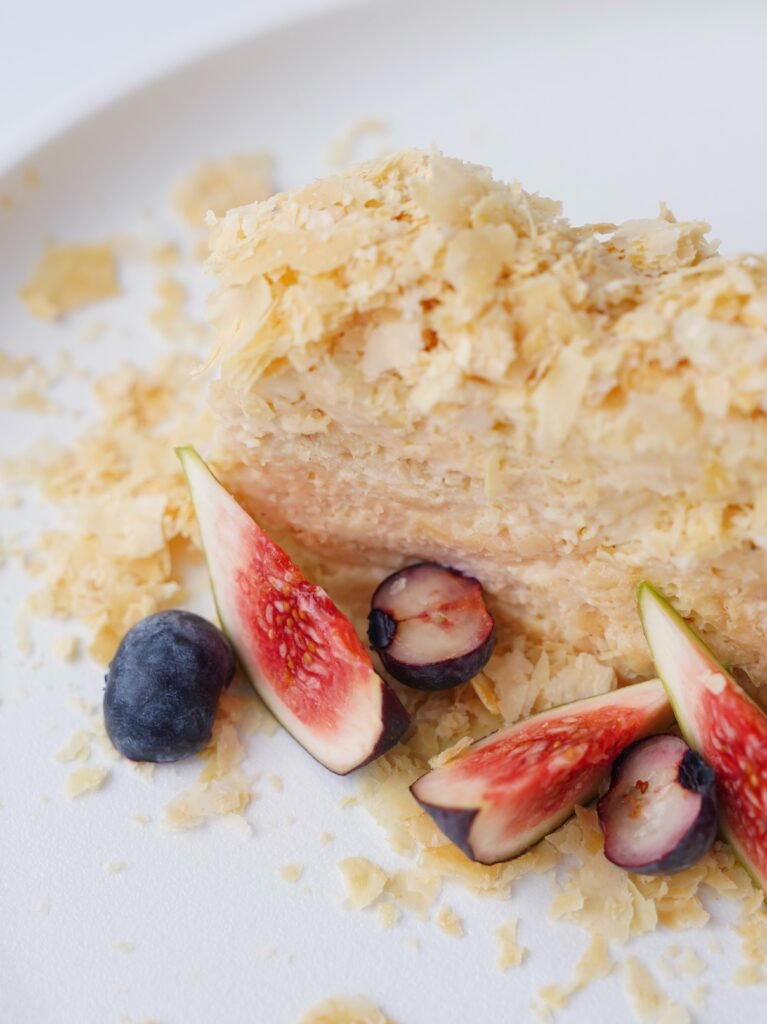Are you a diabetic looking to travel and celebrate holidays abroad? Don’t worry, staying on track with your diabetes management while enjoying the festivities is absolutely possible. In this article, we will explore some helpful tips and strategies to ensure that you can fully immerse yourself in the holiday spirit without compromising your health. From planning ahead and packing essentials to navigating exotic cuisines and maintaining your exercise routine, we’ve got you covered. So, get ready to embrace new cultures, create lasting memories, and celebrate holidays abroad with confidence and peace of mind.

Understanding Diabetes and Travel
Diabetes is a chronic condition that requires constant management, and when it comes to traveling, there are a few extra considerations to keep in mind. Understanding how diabetes affects travel is crucial to ensuring a safe and enjoyable trip. As a diabetic traveler, it’s important to be aware of the challenges that holidays can bring and take proactive steps to manage your condition effectively.
Knowing how diabetes affects travel
Traveling can disrupt your regular routine, including meal times, physical activity, and medication schedules. For diabetics, these disruptions can have a significant impact on blood sugar levels. Changes in time zones, unfamiliar foods, and increased physical activity can all affect how your body processes glucose. As a result, it’s important to plan ahead and make adjustments to your diabetes management plan while traveling.
Why holidays can be challenging for diabetics
Holidays often involve indulging in festive meals, trying new foods, and enjoying treats and sweets. For diabetics, this can be a challenge as it can lead to significant fluctuations in blood sugar levels. It’s essential to strike a balance between enjoying the holiday spirit and maintaining a healthy diet. Additionally, the stress and excitement of holiday travel can also affect blood sugar levels. Being mindful of these challenges can help you stay on track and enjoy your holiday while keeping your diabetes under control.
Managing Diabetes Medication While Traveling
Carrying sufficient diabetes medicine is crucial when traveling. It’s important to pack more than enough supplies, including insulin, oral medications, and testing equipment. It’s also a good idea to divide your supplies between your carry-on and checked luggage to minimize the risk of losing everything if one bag goes missing. Additionally, always carry a prescription or doctor’s note with you, especially when traveling internationally, to ensure smooth passage through security checks.
Maintaining your medication schedule across different time zones can be challenging, but it’s vital to keep your blood sugar levels stable. Speak with your healthcare provider before your trip to determine the best way to adjust your medication schedule. Some diabetics may need to make gradual changes to gradually adapt to the new time zone, while others may need to stick to their home schedule. It’s important to be consistent and monitor your blood sugar levels closely during the adjustment period.
Going through security checks with diabetes supplies requires some preparation. Inform the security personnel that you have diabetes and that you are carrying medical supplies. Make sure all of your supplies are properly labeled and organized in a clear, resealable plastic bag. If necessary, request a private screening to avoid potential damage to your equipment. By being proactive and communicative, you can ensure a smooth and efficient security check experience.

Meal Planning for Diabetics While Abroad
Researching food types in a foreign country is essential for diabetics to manage their diets effectively. Each culture has its own culinary traditions and ingredients, so it’s important to familiarize yourself with the local cuisine. Look for diabetic-friendly options and learn about portion sizes and nutritional values. This knowledge will help you make informed choices when dining out or grocery shopping.
Sticking to a diabetic-friendly diet during holidays can be a challenge, especially when surrounded by tempting treats and indulgent meals. To stay on track, plan your meals in advance and opt for healthier options whenever possible. Don’t be afraid to ask for modifications or substitutions at restaurants to make the dishes more suitable for your dietary needs. Prioritize fruits, vegetables, whole grains, and lean proteins to maintain a balanced diet.
Addressing sweet temptations during celebrations is an important aspect of managing diabetes while traveling. It’s okay to enjoy a treat or two, but moderation is key. Be mindful of portion sizes and opt for healthier alternatives when available. If you know you’ll be surrounded by tempting desserts, plan ahead by eating a balanced meal and avoiding excessive snacking throughout the day. This will help you keep your blood sugar levels stable and avoid sudden spikes.
Regular Checking of Blood Sugar Levels
Carrying a portable glucometer is essential for diabetics to stay on top of their blood sugar levels while traveling. It’s important to check your glucose levels regularly to ensure they are within the target range. The portability of modern glucometers allows for convenient monitoring wherever you are. Make sure to pack enough test strips, lancets, and other necessary supplies for the duration of your trip.
Managing when and how often to check glucose levels can vary depending on individual needs. Talk to your healthcare provider about the best approach for your specific situation. Consider factors such as changes in time zones, meal times, physical activity, and medication adjustments. Maintaining a routine of regular checks will help you identify any potential issues early on and allow you to make the necessary adjustments to keep your blood sugar levels stable.
Responding to extreme blood sugar readings is crucial to avoid complications. If you experience hypoglycemia (low blood sugar), have a snack or drink containing carbohydrates to raise your blood sugar levels. Carry glucose tablets, candy, or juice with you as backup. Conversely, if you have hyperglycemia (high blood sugar), follow your healthcare provider’s instructions for managing high levels. Stay hydrated, engage in physical activity if appropriate, and monitor your blood sugar levels closely.

Staying Active to Maintain Sugar Levels
Involving in physical activities while celebrating can help diabetics maintain stable blood sugar levels. Engaging in physical activities not only helps burn calories but can also improve insulin sensitivity and contribute to overall well-being. Take advantage of the holiday spirit by participating in festive walks, exploring new environments, or even trying out local dances or sports. Just be sure to monitor your blood sugar levels before, during, and after physical activities to ensure they remain stable.
Managing holiday fun and games for diabetics is essential. While it’s important to enjoy your time abroad, it’s also important to find a balance that works for you and your diabetes management plan. Participate in activities that you find enjoyable and that align with your abilities. If necessary, make modifications to ensure your safety and well-being. Listen to your body and take breaks when needed to rest and check your blood sugar levels.
Understanding the impact of increased activity on sugar levels is important for diabetics. Physical activity can affect blood sugar levels, causing them to either rise or fall. This is why monitoring your blood sugar levels before, during, and after physical activities is crucial. Adjust your meals and medication accordingly to prevent hypoglycemia or hyperglycemia. Striking a balance between staying active and managing your blood sugar levels will help you have a safe and enjoyable holiday experience.
How to Handle Alcohol Consumption Abroad as a Diabetic
Understanding the impact of alcohol on blood sugar levels is crucial for diabetics. Alcohol can interfere with your blood sugar levels, causing them to fluctuate. It can initially raise blood sugar levels but later cause them to drop. Additionally, alcohol can impair your judgment and decision-making abilities, making it harder to manage your diabetes effectively. It’s important to consume alcohol in moderation and be aware of how it affects your body.
Limiting alcohol intake while celebrating is important for diabetics. Excessive alcohol consumption can lead to dehydration, which can affect your blood sugar levels and overall well-being. Remember that alcohol contains calories and can contribute to weight gain if consumed in large quantities. Opt for sugar-free or lower-sugar drink options, and consider alternating alcoholic beverages with non-alcoholic ones to reduce overall intake.
Handling peer pressure during holiday parties can be challenging, but it’s important to prioritize your health. Don’t feel obligated to consume alcohol just because others are doing so. Politely decline if you don’t feel comfortable or if you know it will negatively impact your blood sugar levels. If you’re concerned about explaining your decision, consider offering an alternative explanation, such as being the designated driver or simply not feeling like drinking.

Emergency Preparedness for Diabetics Traveling
Knowing the healthcare facilities in your destination country is essential for diabetics traveling abroad. Familiarize yourself with the local healthcare system, including hospitals, clinics, and pharmacies. Research if there are specific facilities that specialize in diabetes management. Keep a list of emergency contacts and healthcare providers nearby, both in your phone and on a printed copy. This will ensure that you have access to medical assistance should the need arise.
Learning basic local language for medical emergencies is crucial for effective communication in case of a health crisis. Take the time to learn a few key phrases or medical terms in the local language. This will help you communicate your condition and medical needs clearly in case of an emergency. Additionally, consider carrying a card or document that outlines your medical condition and treatment plan in both your native language and the local language.
Keeping emergency contact numbers handy is essential. Make sure to have important contact numbers readily accessible, both on your phone and written down on a physical copy. Include numbers for your healthcare provider, emergency services, and any other relevant contact information. Keep a copy of your emergency contacts in your wallet or purse, as well as in your accommodations, so that it’s easily accessible at all times.
Travel Insurance for Diabetics
Importance of getting travel insurance cannot be stressed enough for diabetics. Travel insurance provides peace of mind knowing that you are financially protected in case of unexpected medical expenses or emergencies. When selecting a travel insurance policy, make sure to carefully review the coverage for pre-existing conditions, including diabetes. Ensure that your policy covers necessary medical expenses, including medication, hospitalization, and emergency evacuation if needed.
Understanding coverage for diabetes in travel insurance is crucial. Not all travel insurance policies provide coverage for pre-existing conditions, including diabetes. Read the policy wording thoroughly and pay attention to any exclusions or conditions that may limit or exclude coverage for diabetes-related expenses. Consider consulting with an insurance broker or directly with the insurance provider to clarify any doubts and ensure that you have the right coverage for your needs.

Sharing Diabetes Information While Traveling
Speaking about your condition to your travel partners is important for your safety and their understanding. Educate your travel companions about diabetes, including what it is, how it affects you, and how they can support you. Let them know about your needs, such as regular meal times or the importance of carrying snacks. Sharing this information will help create a supportive environment and ensure that everyone is prepared for any potential situations.
Informing hotel staff about your medical condition is crucial, as they can provide assistance in case of an emergency. Let the front desk staff know about your diabetes and any specific requirements you may have, such as access to a refrigerator for medication storage or the ability to order diabetic-friendly meals. They can also assist in providing directions to the nearest pharmacy or hospital if needed. Open communication with hotel staff will help ensure a safe and comfortable stay.
Carrying diabetes ID while traveling can be a lifesaver in case of an emergency. Invest in a medical ID bracelet or necklace that clearly states your condition and provides emergency contact information. In the event that you’re unable to communicate your condition, medical professionals can quickly identify that you have diabetes and provide appropriate care. Additionally, consider carrying a card that outlines your medical condition and treatment plan in both your native language and the local language.
Keeping the Holiday Stress-Free
Avoiding over-scheduling holiday activities is important for diabetics to manage their stress levels. While it’s tempting to cram in as many activities and sightseeing experiences as possible, overdoing it can lead to fatigue and increased stress levels. Be selective about the activities you participate in and prioritize rest and relaxation. Give yourself downtime to recharge and manage your diabetes effectively.
Taking out time for relaxation amid celebrations is crucial for your overall well-being. Schedule breaks and downtime throughout your trip to ensure that you have time to relax and unwind. Engage in activities that promote relaxation, such as reading a book, taking walks in nature, or enjoying a spa treatment. By prioritizing self-care, you can better manage stress and maintain stable blood sugar levels.
Being flexible and prepared for unexpected scenarios is important for a stress-free holiday. While it’s essential to plan and prepare, it’s equally important to be adaptable and open to changes. Accept that not everything will go according to plan, and unexpected situations may arise. Have a backup plan in place, such as alternative dining options or additional diabetes supplies, to handle any unexpected challenges that come your way. By staying positive and flexible, you can navigate through any situation with ease.
In conclusion, celebrating holidays abroad as a diabetic requires careful planning, preparation, and flexibility. By understanding how diabetes can affect your travel experience and taking proactive steps to manage your condition effectively, you can enjoy a safe and enjoyable holiday. From managing medication and meal planning to staying active and handling alcohol consumption, implementing the tips and strategies discussed in this article will help you stay on track and make the most of your holiday while keeping your diabetes under control. Remember to prioritize your health, communicate your needs to others, and be prepared for unexpected situations. With the right strategies in place, you can have a stress-free holiday experience and create lasting memories while staying on top of your diabetes management.

